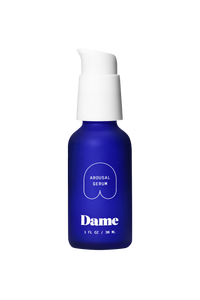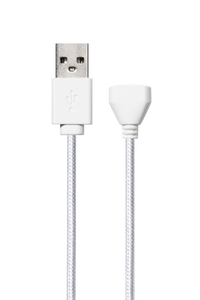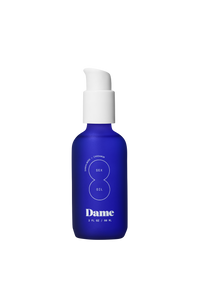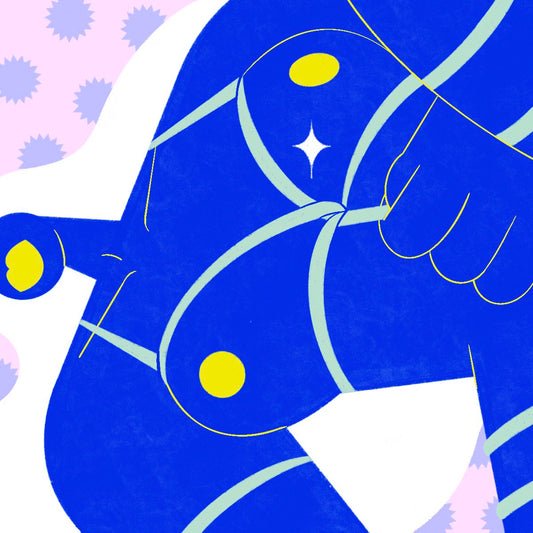There is an all-too-common (and largely invalid) idea, seductively woven into our cultural narrative, that people who like BDSM are traumatized, mentally ill, or damaged in some way.
In reality, BDSM, or “bondage, discipline and sadomasochism,” is a perfectly normal thing to be into. A recent study published in the Sexuality and Social Research Journal found that people who participate in BDSM have essentially the same levels of childhood trauma as anyone else. Practicing kink is normal and healthy, as long as everyone involved is a consenting adult and everyone is being mindful and safe.
But that being said, some people do use BDSM to aid in healing from trauma. And there is nothing wrong with that. “BDSM can be an excellent way to help people explore their own sense of agency and safety, which can be deeply healing when it comes to trauma,” explains Pam Shaffer, MFT, a licensed marriage and family therapist. “Trauma comes from events that happen outside of our control, while in BDSM, the events that unfold during a ‘scene’ between partners are discussed beforehand and either partner has the ability to stop the action with a ‘safe’ word.”
There is so much that can be harnessed (pun intended) in BDSM to heal. People who engage in pain play, power dynamics, and roleplay can use them as therapeutic tools to take back control, explore release, and, for those with sexual trauma, to reclaim their sexuality.
While BDSM does not replace traditional talk therapy, it can be used as a tool. This should be celebrated, not used to ostracize a community or to further alienate trauma survivors.
How BDSM helps you regain a sense of control
There is no way to put into words the dehumanizing, dissociative nature of being a trauma survivor. It is an experience unlike any other. It takes you away from your body, your identity, and your sense of safety in the world. When your body doesn’t feel safe, nothing feels safe.
“For many people who have experienced trauma,
Richmond tells us that one of the most important things a survivor of sexual trauma needs is to feel in control of their environment and of their body. “BDSM is the safest kind of sex a person can have, because, when done well, it involves explicit communication and boundaries around what the experience will and won’t entail,” she explains. “By creating a space where they know their wants and needs will be respected—and their boundaries won’t be violated—trauma is soothed and they can relax into pleasure.”
The physical nature of BDSM, the tactile experience, the constant consent, the aftercare—all of this can create a safe space for healing from many mental health issues.
BDSM practitioners place high value on the need for constant and ongoing consent, staying within boundaries, and allowing everyone to assert their agency. Even in scenes where someone is being submissive to a dominant partner, they are still in control. This can be exceptionally powerful when you have experienced situations where you did not have the option to control what happened to you. It can be a beautiful reclamation.
BDSM is a tool, not a replacement, for trauma work done with the aid of a qualified, trauma-informed therapist. However, when healing from trauma, utilizing all the tools in your toolbox can only help further progress. BDSM is obviously not for everyone, but if you enjoy it (or even the idea of it), it’s there for you.
BDSM can improve overall mental health and well-being.
The physical nature of BDSM, the tactile experience, the constant consent, the aftercare—all of this can create a safe space for healing from many mental health issues.
“Stress, anxiety and depression tend to have major impacts on our sexual health and well-being,” says Daniel Saynt, Founder and Chief Conspirator of NSFW, a sex- and cannabis-friendly private members club in NYC. “When we are experiencing the effects of trauma, we are less likely to be sexual, which means we’re decreasing our bodies’ ability to release feel-good chemicals. BDSM allows us to release these chemicals even when we’re not feeling sexual."
Saynt says that many people enter kink not realizing the benefits it can have for their mental health. “Our normal associations with kink or BDSM is that it’s all about receiving pain or causing it for others. This is just a small portion of the greater benefits which include increasing intimacy with your partner, stress release, and entering subspace, which, much like meditation, provides the body and mind with needed moments of focus.”
Additionally, BDSM emphasizes the need for care and nurturing within any dynamic, no matter how sadomasochistic it may be in the scene itself. There is always a stated and practiced duty to respect the person you are playing with.
Once play is done, partners engage in aftercare, the practice of checking in, cuddling, and/or talking through what just happened. It allows for closure and a space to bring everyone back to a state of equilibrium. Everyone can benefit from this kind of care, especially when we get so little in our everyday lives.
“Delving into kink can help people practice self-acceptance as they have to be vulnerable with other people and foster safety for everyone's emotions,” Shaffer says. “Essentially, kink is all about exploration and growth, which is obviously great for mental health and well being.”
One final note. Be sure if you are engaging with kink with a partner that you are doing so with full consent of the other party. If you are working with a professional, be sure it is someone who knows what they are doing, are well-regarded, and are known for their safe BDSM practices.
Don’t get me wrong, BDSM is definitely for the garden-variety horndogs and perverts, and not just those who are healing. Who says we can’t be both at the same time? Either way, BDSM deserves to be revered, not made taboo.




























